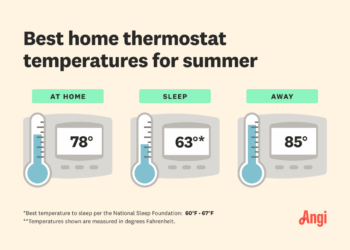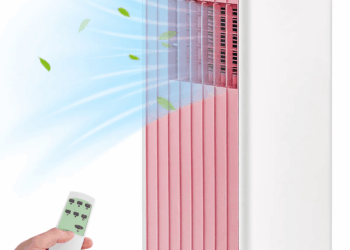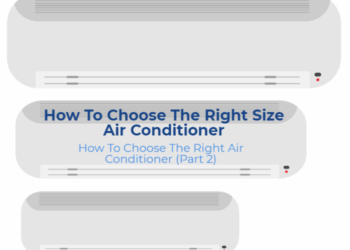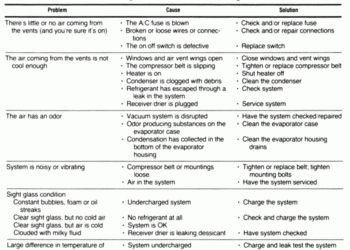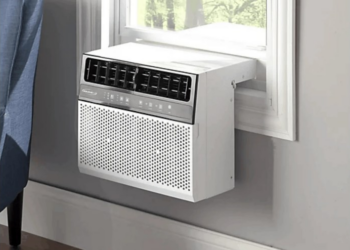Exploring the importance of maintaining clean air conditioner filters, this piece delves into the frequency and methods of cleaning to ensure optimal performance of your unit. From understanding the repercussions of neglecting filter maintenance to identifying signs that cleaning is necessary, this guide covers all you need to know.
Providing guidelines on when and how to clean your air conditioner filters can significantly impact the air quality in your home, ultimately contributing to a healthier living environment.
Importance of Cleaning Air Conditioner Filters
Regularly cleaning air conditioner filters is crucial for optimal performance. Dirty filters can restrict airflow, causing the system to work harder and consume more energy. This can lead to higher utility bills and even premature breakdown of the air conditioner.Dirty filters can also have consequences on indoor air quality.
As the filters become clogged with dust, pollen, and other particles, they are less effective at capturing these contaminants. This can result in poor indoor air quality, leading to respiratory issues, allergies, and other health problems for occupants.
Impact on Indoor Air Quality
Dirty air conditioner filters can release pollutants and allergens back into the air, reducing the overall air quality in your home. This can exacerbate respiratory conditions, trigger allergies, and cause discomfort for those with sensitivities to airborne particles. Regularly cleaning the filters can help maintain a healthier indoor environment for you and your family.
Frequency of Cleaning
When it comes to cleaning air conditioner filters, the frequency at which you should do it depends on various factors. Let's delve into some guidelines on how often you should clean your air conditioner filters based on your usage.
Factors Influencing Cleaning Frequency
Several factors can influence how often you need to clean your air conditioner filters. These include:
- The environment: If you live in a dusty or polluted area, you may need to clean your filters more frequently.
- Frequency of use: If you use your air conditioner regularly, especially in peak seasons, you should clean the filters more often.
- Number of occupants: A higher number of occupants in a household can lead to more dust, dirt, and contaminants in the air, requiring more frequent filter cleaning.
- Pets: If you have pets, their fur and dander can clog the filters faster, necessitating more frequent cleaning.
Reusable vs. Disposable Filters
When it comes to comparing cleaning frequency between reusable and disposable filters, reusable filters generally need to be cleaned more frequently. This is because reusable filters require regular maintenance to ensure they continue to function effectively. On the other hand, disposable filters are replaced rather than cleaned, typically every 1-3 months depending on usage.
Signs that Filters Need Cleaning
One of the most crucial aspects of maintaining your air conditioner is keeping the filters clean. Here are some common signs that indicate it's time to clean your air conditioner filters:
Decreased Airflow
When your air conditioner starts to blow less air than usual, it could be a sign that the filters are clogged. This restriction in airflow can make your AC unit work harder to cool the air, leading to increased energy consumption and higher utility bills.
Increased Energy Bills
A clogged filter forces your air conditioner to work harder to maintain the desired temperature, resulting in higher energy bills. Regularly cleaning or replacing the filters can help improve the efficiency of your AC unit and reduce energy costs.
Visible Dust and Debris
If you notice a buildup of dust and debris on the air conditioner filters, it's a clear indication that they need to be cleaned. Dirty filters can not only affect the air quality in your home but also reduce the lifespan of your air conditioner.
Ice Formation on the Evaporator Coils
Another sign of clogged filters is the formation of ice on the evaporator coils of your air conditioner. This happens when the restricted airflow causes the coils to become too cold, leading to ice buildup. Cleaning the filters can help prevent this issue.
Methods for Cleaning Filters
Cleaning air conditioner filters is crucial for maintaining the efficiency and longevity of your unit. Here are some detailed steps for cleaning reusable air conditioner filters, along with tips for using the right cleaning products and techniques to ensure thorough cleaning.
Step-by-step Cleaning Process:
- Turn off the air conditioner and unplug it for safety.
- Locate the air filter, which is typically found behind the front grille or within the air handler unit.
- Remove the filter carefully to avoid damaging it.
- Use a vacuum cleaner with a soft brush attachment to gently remove dust and debris from the filter.
- If the filter is washable, rinse it with water and mild detergent. Avoid using harsh chemicals that could damage the filter.
- Allow the filter to dry completely before reinstalling it in the air conditioner.
- Regularly check the filter for any signs of damage or wear and replace it if necessary.
Importance of Using the Right Cleaning Products and Techniques:
- Using the right cleaning products and techniques is essential to prevent damage to the filter.
- Avoid using harsh chemicals or abrasive materials that could degrade the filter material.
- Follow the manufacturer's instructions for cleaning the filter to ensure proper maintenance.
- Regular cleaning with the right products and techniques will help maintain the efficiency of your air conditioner and improve air quality in your home.
Tips for Ensuring Thorough Cleaning:
- Set a regular schedule for cleaning your air conditioner filter to prevent buildup of dust and debris.
- Inspect the filter regularly for any signs of clogging or damage that may affect airflow.
- Consider using a vacuum cleaner with a HEPA filter for more efficient cleaning of the air filter.
- If you are unsure about how to clean the filter properly, consult the manufacturer's instructions or seek professional help.
Closing Summary
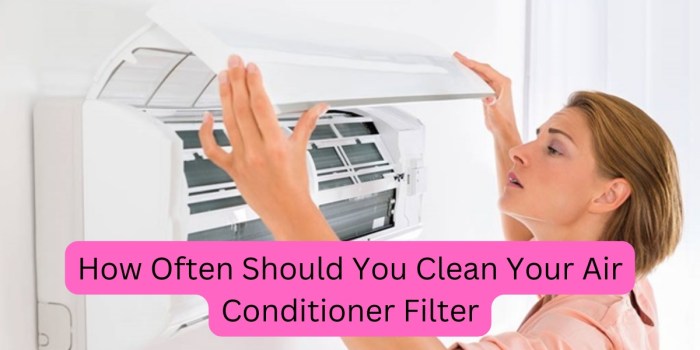
In conclusion, regular cleaning of your air conditioner filters is a simple yet crucial task that can enhance the efficiency and longevity of your unit. By following the recommended cleaning frequency and methods, you can enjoy cleaner air and a more comfortable living space.
FAQ Guide
How do dirty filters impact indoor air quality?
Dirty filters can lead to poor indoor air quality by allowing dust, allergens, and pollutants to circulate freely, potentially causing respiratory issues and allergies.
What are common signs that indicate the need to clean air conditioner filters?
Common signs include reduced airflow, increased energy consumption, unpleasant odors, and visible dust accumulation on the filter.
How frequently should reusable air conditioner filters be cleaned?
Reusable filters should typically be cleaned every 1-2 months, but the frequency may vary based on usage and environmental factors.
What are the recommended methods for cleaning reusable air conditioner filters?
It is recommended to vacuum or rinse reusable filters with water and mild detergent, ensuring thorough cleaning and proper drying before reinstallation.
Exploring the importance of maintaining clean air conditioner filters, this piece delves into the frequency and methods of cleaning to ensure optimal performance of your unit. From understanding the repercussions of neglecting filter maintenance to identifying signs that cleaning is necessary, this guide covers all you need to know.
Providing guidelines on when and how to clean your air conditioner filters can significantly impact the air quality in your home, ultimately contributing to a healthier living environment.
Importance of Cleaning Air Conditioner Filters
Regularly cleaning air conditioner filters is crucial for optimal performance. Dirty filters can restrict airflow, causing the system to work harder and consume more energy. This can lead to higher utility bills and even premature breakdown of the air conditioner.Dirty filters can also have consequences on indoor air quality.
As the filters become clogged with dust, pollen, and other particles, they are less effective at capturing these contaminants. This can result in poor indoor air quality, leading to respiratory issues, allergies, and other health problems for occupants.
Impact on Indoor Air Quality
Dirty air conditioner filters can release pollutants and allergens back into the air, reducing the overall air quality in your home. This can exacerbate respiratory conditions, trigger allergies, and cause discomfort for those with sensitivities to airborne particles. Regularly cleaning the filters can help maintain a healthier indoor environment for you and your family.
Frequency of Cleaning
When it comes to cleaning air conditioner filters, the frequency at which you should do it depends on various factors. Let's delve into some guidelines on how often you should clean your air conditioner filters based on your usage.
Factors Influencing Cleaning Frequency
Several factors can influence how often you need to clean your air conditioner filters. These include:
- The environment: If you live in a dusty or polluted area, you may need to clean your filters more frequently.
- Frequency of use: If you use your air conditioner regularly, especially in peak seasons, you should clean the filters more often.
- Number of occupants: A higher number of occupants in a household can lead to more dust, dirt, and contaminants in the air, requiring more frequent filter cleaning.
- Pets: If you have pets, their fur and dander can clog the filters faster, necessitating more frequent cleaning.
Reusable vs. Disposable Filters
When it comes to comparing cleaning frequency between reusable and disposable filters, reusable filters generally need to be cleaned more frequently. This is because reusable filters require regular maintenance to ensure they continue to function effectively. On the other hand, disposable filters are replaced rather than cleaned, typically every 1-3 months depending on usage.
Signs that Filters Need Cleaning
One of the most crucial aspects of maintaining your air conditioner is keeping the filters clean. Here are some common signs that indicate it's time to clean your air conditioner filters:
Decreased Airflow
When your air conditioner starts to blow less air than usual, it could be a sign that the filters are clogged. This restriction in airflow can make your AC unit work harder to cool the air, leading to increased energy consumption and higher utility bills.
Increased Energy Bills
A clogged filter forces your air conditioner to work harder to maintain the desired temperature, resulting in higher energy bills. Regularly cleaning or replacing the filters can help improve the efficiency of your AC unit and reduce energy costs.
Visible Dust and Debris
If you notice a buildup of dust and debris on the air conditioner filters, it's a clear indication that they need to be cleaned. Dirty filters can not only affect the air quality in your home but also reduce the lifespan of your air conditioner.
Ice Formation on the Evaporator Coils
Another sign of clogged filters is the formation of ice on the evaporator coils of your air conditioner. This happens when the restricted airflow causes the coils to become too cold, leading to ice buildup. Cleaning the filters can help prevent this issue.
Methods for Cleaning Filters
Cleaning air conditioner filters is crucial for maintaining the efficiency and longevity of your unit. Here are some detailed steps for cleaning reusable air conditioner filters, along with tips for using the right cleaning products and techniques to ensure thorough cleaning.
Step-by-step Cleaning Process:
- Turn off the air conditioner and unplug it for safety.
- Locate the air filter, which is typically found behind the front grille or within the air handler unit.
- Remove the filter carefully to avoid damaging it.
- Use a vacuum cleaner with a soft brush attachment to gently remove dust and debris from the filter.
- If the filter is washable, rinse it with water and mild detergent. Avoid using harsh chemicals that could damage the filter.
- Allow the filter to dry completely before reinstalling it in the air conditioner.
- Regularly check the filter for any signs of damage or wear and replace it if necessary.
Importance of Using the Right Cleaning Products and Techniques:
- Using the right cleaning products and techniques is essential to prevent damage to the filter.
- Avoid using harsh chemicals or abrasive materials that could degrade the filter material.
- Follow the manufacturer's instructions for cleaning the filter to ensure proper maintenance.
- Regular cleaning with the right products and techniques will help maintain the efficiency of your air conditioner and improve air quality in your home.
Tips for Ensuring Thorough Cleaning:
- Set a regular schedule for cleaning your air conditioner filter to prevent buildup of dust and debris.
- Inspect the filter regularly for any signs of clogging or damage that may affect airflow.
- Consider using a vacuum cleaner with a HEPA filter for more efficient cleaning of the air filter.
- If you are unsure about how to clean the filter properly, consult the manufacturer's instructions or seek professional help.
Closing Summary

In conclusion, regular cleaning of your air conditioner filters is a simple yet crucial task that can enhance the efficiency and longevity of your unit. By following the recommended cleaning frequency and methods, you can enjoy cleaner air and a more comfortable living space.
FAQ Guide
How do dirty filters impact indoor air quality?
Dirty filters can lead to poor indoor air quality by allowing dust, allergens, and pollutants to circulate freely, potentially causing respiratory issues and allergies.
What are common signs that indicate the need to clean air conditioner filters?
Common signs include reduced airflow, increased energy consumption, unpleasant odors, and visible dust accumulation on the filter.
How frequently should reusable air conditioner filters be cleaned?
Reusable filters should typically be cleaned every 1-2 months, but the frequency may vary based on usage and environmental factors.
What are the recommended methods for cleaning reusable air conditioner filters?
It is recommended to vacuum or rinse reusable filters with water and mild detergent, ensuring thorough cleaning and proper drying before reinstallation.

